Political Instability and Security Threats: Here Are Main Events That Shook Israel in 2021
06:11 GMT 29.12.2021 (Updated: 09:22 GMT 05.12.2023)
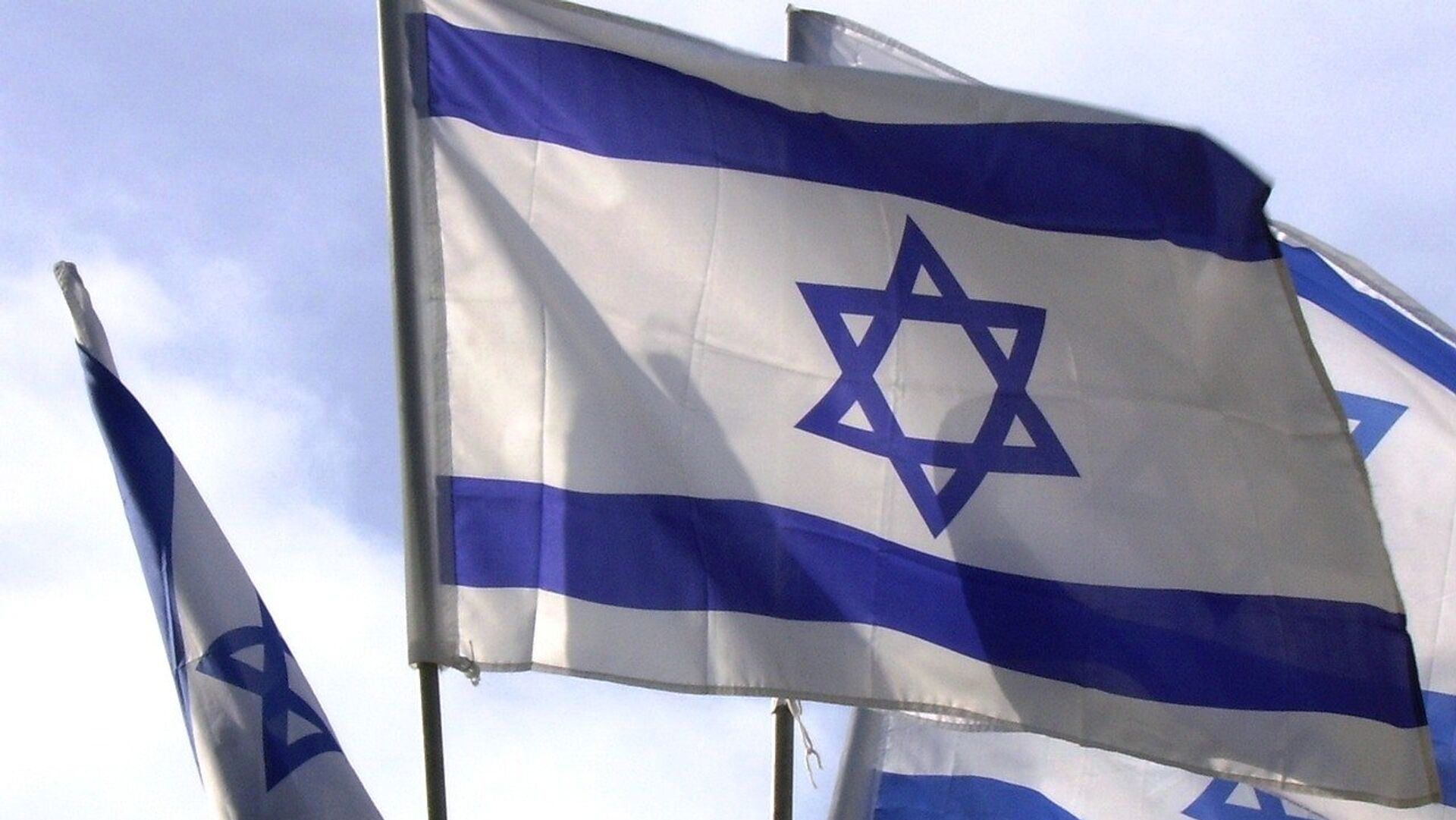
© Photo : Pixabay
Subscribe
The year 2021 will be remembered in Israel for "Operation Guardian of the Walls" in the Gaza Strip and for the raging coronavirus pandemic that prompted the government to roll out a booster shot for the masses. But it will also be associated with a stalemate on the Palestinian front and still unresolved economic hardships.
2020 was a tough year for Israel, primarily because of political instability and the outbreak of the coronavirus pandemic. When it ended, many were hopeful that 2021 would bring with it much-needed change.
But as 2021 draws to a close, many Israelis have come to realise that this year was no less challenging than the previous one.
Here is a recap of the main events that took place this year.
Political Stability?
In March, Israelis went to the polls for the fourth time in two years, and although the Likud party still held a lead in terms of the number of seats in the Israeli Parliament, its leader Benjamin Netanyahu failed to form a coalition. His rivals did, and a new government was sworn in in mid-June, effectively ending the tenure of the nation's longest-serving prime minister.
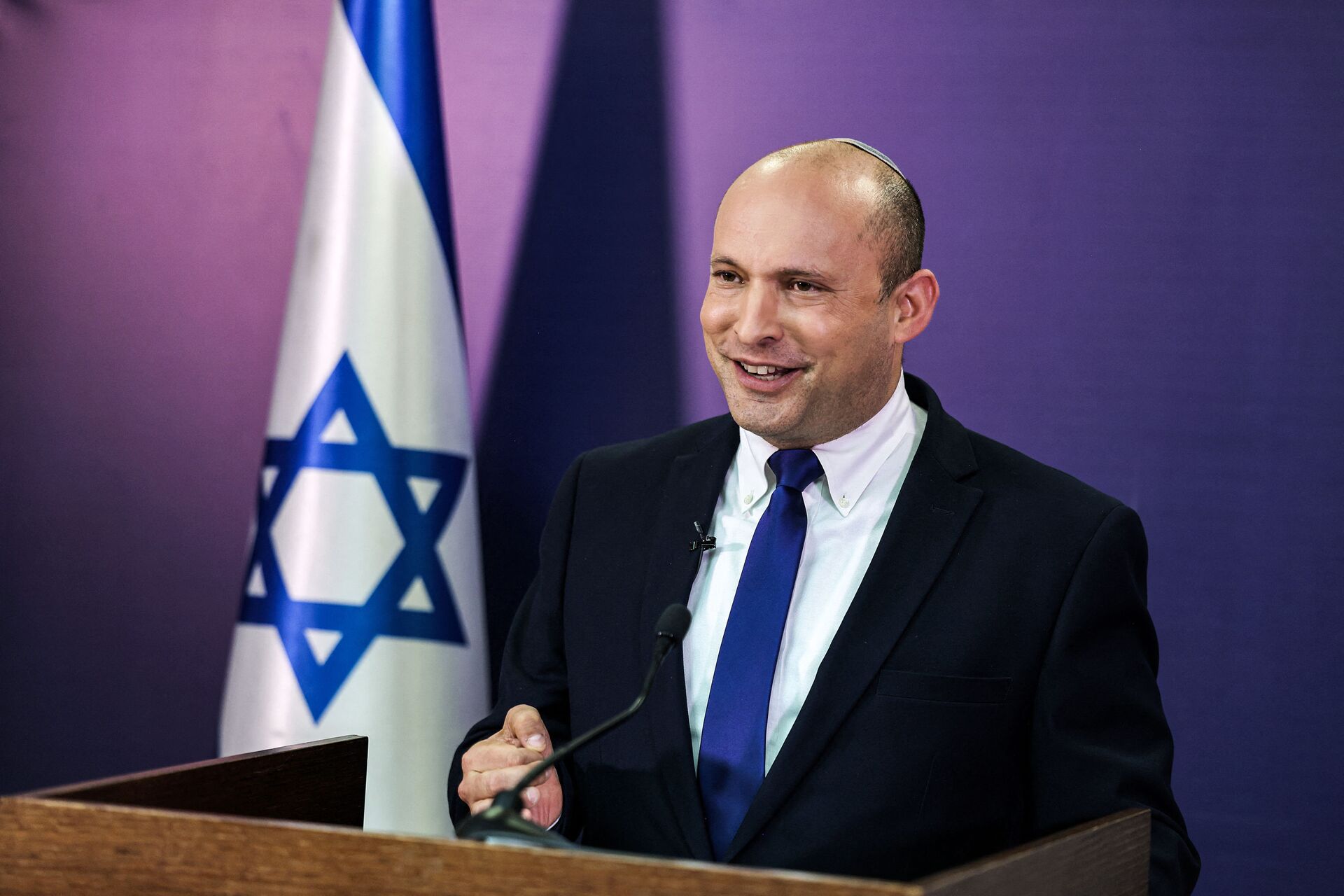
Naftali Bennett, Israeli parliament member from the Yamina party, gives a statement at the Knesset, Israel's parliament, in Jerusalem on June 6, 2021. - In power for 12 consecutive years, Israel's embattled Prime Minister Benjamin Netanyahu faces being toppled by a motley coalition of lawmakers united only by their shared hostility towards him. Under the agreement, the right-wing nationalist Bennett would be premier for two years, to be replaced by the centrist Yair Lapid of the Yesh Atid party in 2023.
© AFP 2023 / MENAHEM KAHANA
Yet, the new coalition has not ushered in a period of stability. Comprised of eight parties with often opposing ideologies, the members of the government are struggling to come to terms on various paramount issues that have been dividing Israeli society, such as the status of Jerusalem or Israel's settlement activity in the West Bank.
Frictions between coalition members, quarrels, and disagreements have been covered by the Israeli media, and although the government says it is here to stay, experts have already warned that it will not survive a major crisis.
Security Challenges
Last year, the IDF estimated that 2020 was one of the safest years in the past decade, with Gaza-based terrorist groups only launching 176 rockets into Israel. Ninety percent of those fell in open spaces.
At the time, the relative quiet was put down to the outbreak of COVID-19 in the Palestinian territories and the preoccupation of Hamas with the health crisis it unlocked.
The general belief was that this trend would carry on into 2021, but in May both sides realised that another confrontation was imminent.
The Palestinians had been accusing Israel of evicting families from the Sheikh Jarrah neighbourhood. They blamed Tel Aviv for violating their rights on the Temple Mount, a plateau in Jerusalem considered holy for both Muslims and Christians.
On 10 May, Hamas decided it'd had enough, firing a barrage of rockets into Jerusalem and other Israeli cities. In total, during the 12 days of fighting, the Islamic group launched almost 4,400 rockets. Israel retaliated by launching "Operation Guardian of the Walls" and striking over 1,500 targets in the Gaza Strip, including launch sites, command and control centres. In the process, it also damaged the Strip's infrastructure, including schools, hospitals, and roads.
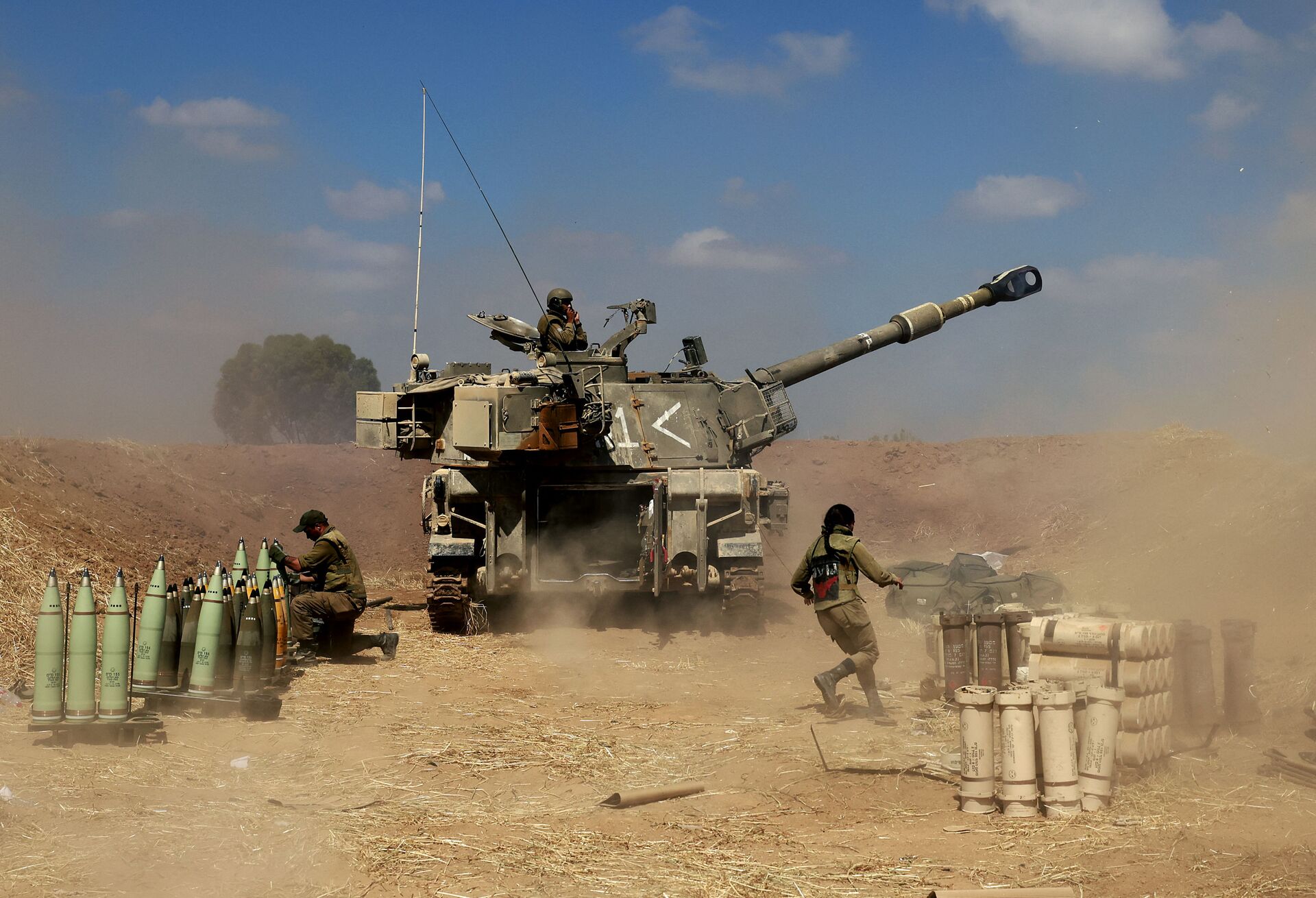
Israeli soldiers fire a 155mm self-propelled howitzer towards the Gaza Strip from their position near the southern Israeli city of Sderot on May 13, 2021. - Israel faced an escalating conflict on two fronts, scrambling to quell riots between Arabs and Jews on its own streets after days of exchanging deadly fire with Palestinian militants in Gaza.
© AFP 2023 / MENAHEM KAHANA
Those hostilities eventually ceased at the end of May with the help of Egyptian mediators. Israel lifted some of its restrictions on Gaza, expanding the fishing zone and granting entry permits to thousands of Gazans working in Israel. The Islamic group has not escalated the conflict since, refraining from firing rockets into Israeli towns and cities.
Yet, the problem didn't go away, it just shifted to another location - Jerusalem. Over the past month, Israel has seen a surge in terrorism activity, registering 15 attacks or attempted attacks, primarily in the disputed city and the West Bank, and the general feeling is that another confrontation with Hamas is just around the corner.
COVID-19 is Still a Headache
In terms of battling the pandemic, the beginning of 2021 appeared to be promising. The vaccination campaign bore fruit and the numbers of daily patients continued to decline.
Then, in July, the first case of the Delta variant was spotted and the situation rapidly deteriorated, prompting Israel to roll out a booster shot for the entire population.
The third jab did the trick and the numbers of daily cases once again started sinking, but the booster campaign prompted dissatisfaction among the general public, who was largely frustrated by what they called "coercion" to get those vaccines.
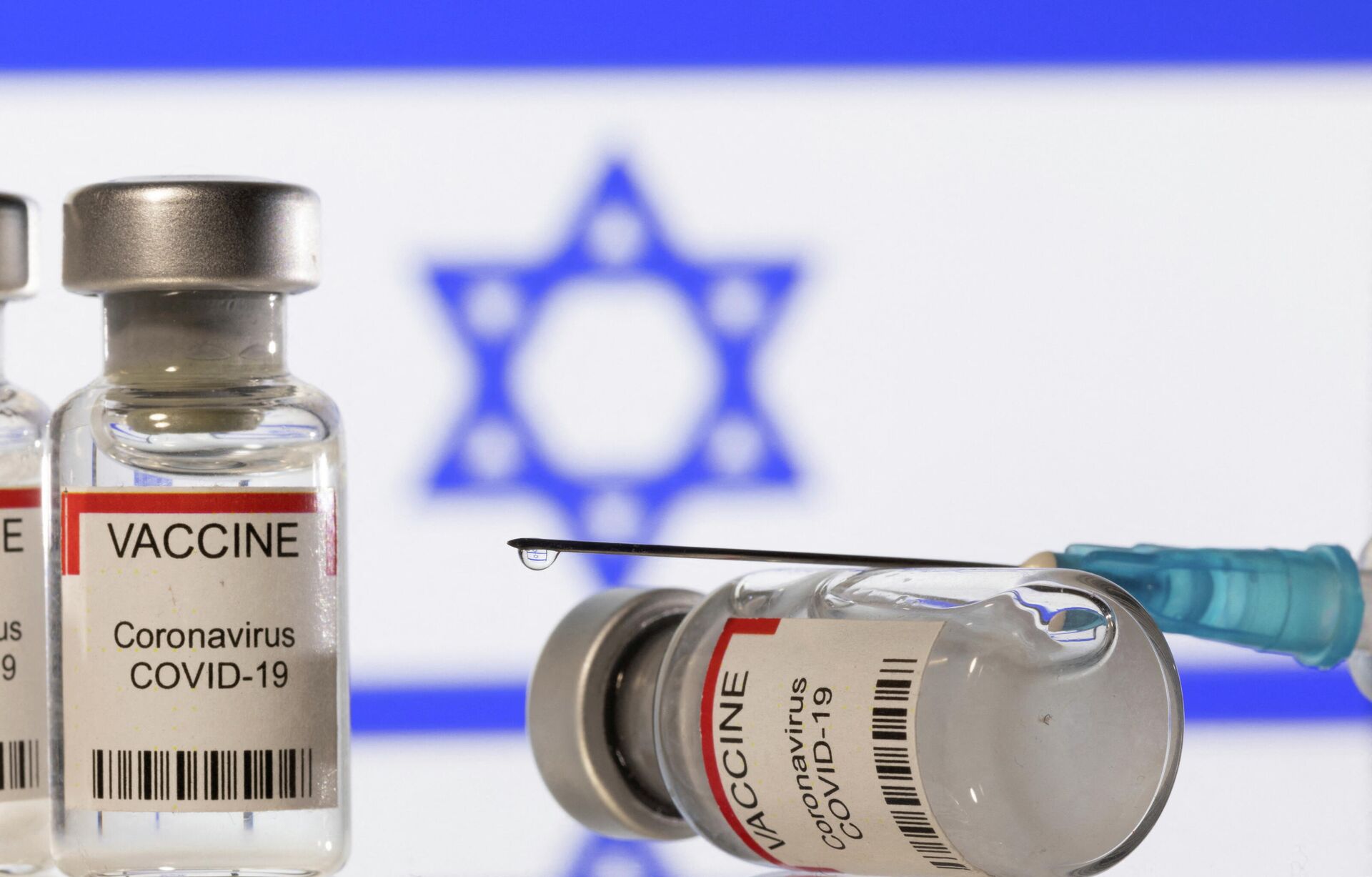
Vials labelled "VACCINE Coronavirus COVID-19" and a syringe are seen in front of a displayed flag of Israel in this illustration taken December 11, 2021.
© REUTERS / DADO RUVIC
Now, several months, after the discovery of Delta, the trend is repeating itself. This time around it is the Omicron strain that is keeping Israeli experts, scientists, and politicians on their toes.
Authorities have already said they are now contemplating the introduction of a fourth vaccine dose for medical personnel, and people above 60 or those at risk. But many in Israel are concerned that it is only a matter of time before this policy becomes mandatory for everyone.
Money Talks
The first half of 2021 gave hope to many Israelis. Despite the pandemic, the new government managed to keep the country largely open and the economy stayed afloat. Unemployment rates, which have been exceptionally high, started stabilising.
Under the surface, though tensions were brewing.
Israeli doctors have taken to the streets to demand better working conditions and higher salaries.
Tour guides have been venting their anger against the government that kept tourists at bay due to COVID-19 without compensating them for their losses.
Owners of businesses have also followed suit.
The Israeli government promised to tackle these and many other financial hardships. In November, it finally passed the national budget, for the first time in three years, but the general feeling in Israel is that various problems like high prices for food, electricity, and real estate, are still unresolved.
Good Ties With Neighbours?
Netanyahu's departure has been seen as a positive development for some regional players, who have used the momentum to improve their relations with Israel.
Such was the case with Turkey, whose President Recep Tayyip Erdogan has already stated he was willing to resume ties with the Jewish state. And such was the case with Jordan, whose monarch Abdullah II has met with a number of Israeli politicians in a bid to promote the Palestinian issue.
Relations have also seen a boost with the UAE and Egypt whose leaders have hosted Israeli Prime Minister Naftali Bennett and vowed to cooperate with Israel on a number of important fronts.
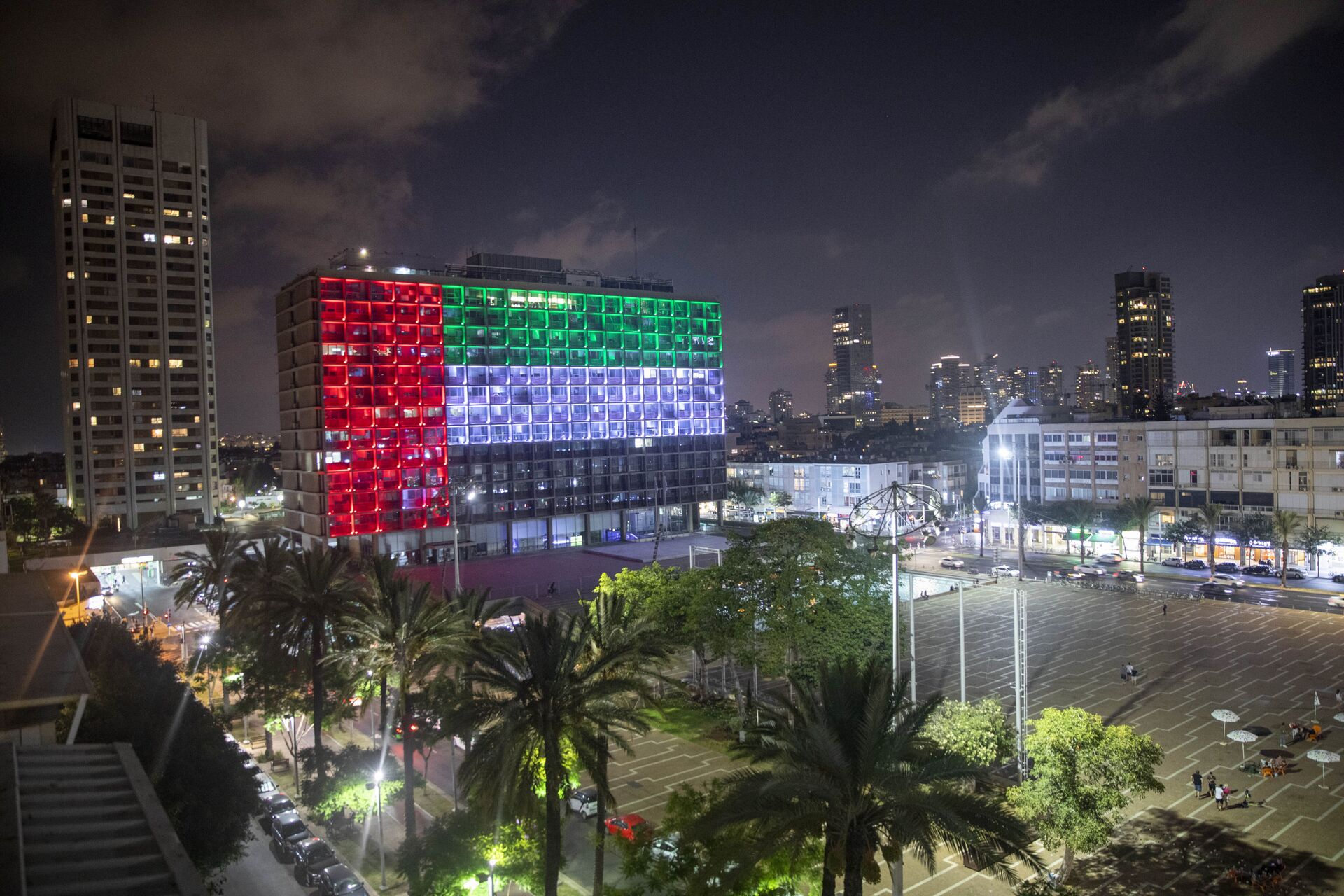
Tel Aviv City Hall is lit up with the flags of the United Arab Emirates and Israel as the countries announced they would be establishing full diplomatic ties, in Tel Aviv, Israel, Thursday, Aug. 13, 2020. In a nationally broadcast statement, Prime Minister Benjamin Netanyahu said the "full and official peace" with the UAE would lead to cooperation in many spheres between the countries and a "wonderful future" for citizens of both countries.
© AP Photo / Oded Balilty
With the Palestinians, however, relations have remained largely unchanged. President Abbas did speak and meet with a number of Israeli officials but the policy of the Jewish state has largely remained unaltered. New homes continue to be built in the disputed West Bank, settlers and the Palestinians continue to clash in various points across the area.
Will the situation improve in the new year? Israelis appear to be optimistic, but the question that begs to be answered is whether this optimism will remain for long.


